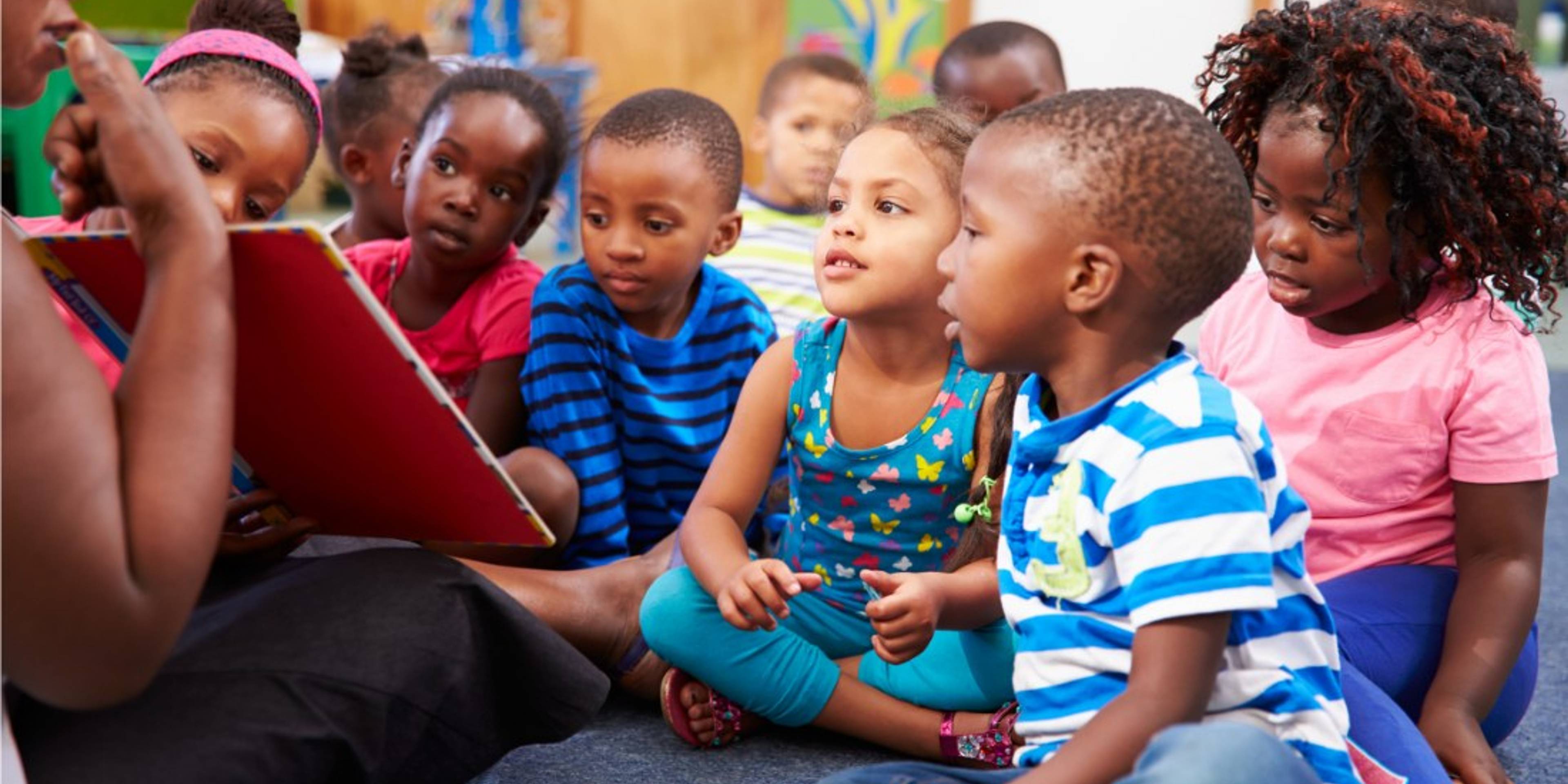July 15, 2024
The impact of digital experiences on teens with mental health vulnerabilities

Over the last decade, digital developments have led to major changes in the ways that teens learn, work, play and interact with others. Digital access is a daily reality for most children and young people. Nine in 10 children in the UK now own a smartphone by the time they reach the age of 11, and the large majority of children aged 11 now use social media (78%) and have a social media profile (72%), despite being younger than the minimum age requirement for many platforms. By the time teens are 17 years old, 97% will use social media.
Coincident with this change, adolescent mental health problems have also increased in prevalence. It is therefore no surprise that much research has focused on the relationship between digital experiences and adolescent mental health. However, comparatively few studies have directly compared the experiences of teens with mental health conditions meaning that some key questions remain unanswered. Do adolescents with pre‐existing mental health conditions differ in terms of why and how they engage with the digital world compared to peers without such difficulties? Are specific mental health conditions linked to different patterns of digital usage? What role do such differences play in the development and escalation of these conditions?
In a recent paper, our Researcher of the Month, Dr Kasia Kostyrka-Allchorne, and her colleagues, explore what the evidence shows about the digital experiences of teens with mental health vulnerabilities.
Summary
Dr Kostyrka-Allchorne’s systematic review of the existing evidence focuses on the digital experiences of young people with four specific ‘clinically significant’ mental health difficulties: anxiety, depression, eating problems and non-suicidal self‐harm.
In relation to teens’ mental health, the digital world has been described as a triple‐edged sword. Firstly, it provides great opportunities for growth and development. It facilitates connection, creativity and personal exploration – all of which are vitally important to young people, and which, via the digital world, they can access with minimal effort. However, these same characteristics of immediacy and ease of access can also potentially expose adolescents to inappropriate content and adverse experiences that may place them and their mental health at risk. The third edge of the sword refers to the potential of harnessing digital media for the identification and treatment of mental health problems, as it is increasingly being used to provide psychological support.
The review found that teens with mental health vulnerabilities engage with the digital environment in some specific ways, identifying several nuanced themes. Whilst some online behaviours appear to be largely universal throughout the teen population, others may be more common in young people with clinical levels of mental health problems. In line with the idea of a triple-edged sword, digital engagement can have both positive and negative outcomes for these young people.
The review found that teens often report going online to participate in niche communities or to seek peer-based or professional support. Teens emphasised the near‐instant nature of online support and the ability to easily reach a large group of peers, who provided acceptance, reassurance, a sense of shared experience, validation and belonging. However, by engaging with niche communities, their problems could also be triggered, encouraged or amplified – particularly through their normalisation on self-harm or pro-anorexia communities.
Using digital media was also found to help teens find temporary relief from their psychological difficulties, allowing them to unwind, reducing levels of stress and acting as a ‘digital retreat’. At the same time, using digital media as a means of escape was frequently found to be a maladaptive coping strategy, which could lead to difficulties in regulating use. Young people diagnosed with depression consistently reported higher levels of problematic use and greater difficulties in regulating their digital engagement than their nonclinical peers.
Adolescence is a period of development which is associated with seeking peer acceptance and belonging. It’s therefore unsurprising that young people in the study embrace the opportunities for communication, networking and boosting social popularity afforded by the digital world. Teens acknowledged that some of their digital practices were motivated by seeking approval or acceptance in the form of digital social feedback, such as ‘likes’, ‘hearts’, views, shares or follows. However, for young people with emotional difficulties, this was found to lead to two potential negative outcomes. Firstly, it might motivate engagement in risky or problematic online practices to gain positive social feedback or to appear popular. Secondly, viewing heavily filtered posts that are a poor reflection of mundane reality can evoke feelings of missing out, and lead to negative social comparisons that lower the mood of clinically vulnerable teens.
Implications
“Adolescents with clinical‐level mental health difficulties may be more vulnerable to digitally mediated harm compared with peers, who do not have mental health difficulties.”
Remember that the digital world can be very helpful. It allows young people to access support and can play a role in creating a sense of connection and in showing teens narratives of recovery.
Take a look at the Children’s Commissioner’s digital 5 a day. Based on the NHS’s evidence-based ‘‘five steps to better mental wellbeing’, the campaign gives children and parents easy to follow, practical steps to achieve a healthy and balanced digital diet.
Talk to young people about their online connections. Try to have open discussions about who they connect with and about their privacy settings. Let them know you are there to help them if they need you.
Build in time to switch off and get moving. Notice what other activities your teen enjoys and make sure these form part of their daily routine. Remember that young people can feel pressured by the constantly connected nature of the internet and may find it difficult to put down their phones when apps are encouraging them to engage. Encourage them to consider how their time online makes them feel. If they find it hard to manage their use, they might find it helpful to keep a diary of the amount of time they spend online.
Encourage creativity. Time online does not need to be spent scrolling passively and the digital world offers young people numerous opportunities to be creative and build vital skills.
Encourage children and teens to develop digital skills and agency. Give them tools to understand the importance of creating a digital footprint that can help, rather than hinder, them in the future.
Put children and young people at the forefront of your discussions around digital use. Give them a voice. Listen to their perspectives and hear their concerns. Ask what support they need rather than making assumptions.
Be a good role model. Consider how you engage with digital devices. Role modelling the actions that we want to see can help to promote positive behaviours in our children.
Give them the opportunity to explore some risks in a controlled way. Scaffold their experiences and be there to talk, but respect their growing agency.
Noticing signs of problematic use? Don’t panic. We want to be proactive about young people’s digital use and support them before any problems with usage arise. However, if you do notice that their use of digital media is getting in the way of enjoying everyday life, sleep or studies, then these are concerning signs. Try to approach your child about this in a gentle, curious and non-judgemental way. Don’t forget about seeking support for yourself if you need it.

Dr Kasia Kostyrka-Allchorne
Lecturer in the Department of Psychology at Queen Mary University of London
Dr Kasia Kostyrka-Allchorne is a developmental psychologist and lecturer in the Department of Psychology at Queen Mary University of London. Broadly, she researches the risks and opportunities of growing up in a digital world. Her current research cuts across the disciplines of child and adolescent development, mental health, clinical interventions, and human-computer interactions. She works on large, cross-institutional research projects that come under two main strands.
The first strand focuses on gathering evidence of whether digital interventions can provide a solution to the growing problem of the lack of psychological support for parents, who may have a difficult time bringing up their children. Within this strand, Dr Kostyrka-Allchorne works with parents, clinicians, app developers and other researchers on developing and testing digital applications supporting parents both in the community as well as in the clinical services.
Second, she is involved in the work of the Digital Youth consortium and, specifically, the DIORA study, which investigates whether, why, and for whom digital engagement is a risk or protective factor for mental health. This strand of research aims to provide a comprehensive characterisation of the associations between adolescent digital activity and mental health and identify some of their underpinning mechanisms.
Dr Kasia Kostyrka-Allchorne
Lecturer in the Department of Psychology at Queen Mary University of London
Related Resources

Scroll our research gallery

Mar 17, 2025
Fostering a school culture against bullying: the KiVa Programme
Bullying is an extremely important public mental health risk. Around one in five primary school children report being bullied at least weekly. Children who are bullied are more likely to experience depression and anxiety, and are at heightened risk of mental health issues in adolescence and adulthood. Whilst schools in England and Wales are required to have anti-bullying policies, rates of bullying remain high. Bullying is preventable, but schools need more help to tackle it. Typically, school policies focus on how to handle bullying once it happens. However, evidence suggests that a comprehensive approach involving the entire school to prevent bullying, alongside clear strategies for addressing confirmed cases, is the most effective way to tackle the issue. KiVa is one such whole-school approach, developed in Finland by Professor Christina Samivalli. A large study in Finland which involved 28,000 primary school pupils found that adopting the KiVa programme in Finnish schools significantly reduced bullying and improved children's mental wellbeing. The programme has since been rolled out nationally by the Finnish government and ongoing use of KiVa in Finnish schools is associated with year-on-year incremental reductions in bullying. Along with colleagues, our researcher of the month, Professor Judy Hutchings OBE, has tested the effectiveness of the KiVa Programme in UK primary schools. The study involved over 11,000 children in Wales, Birmingham, Oxfordshire and Devon, and showed a 13% reduction in reported rates of bullying when compared with existing school approaches to tackle bullying.

Feb 12, 2025
When is the right age? Searching for age-appropriate ways to support children's online lives
Currently, children's and young people’s use of digital technology is rarely out of the news. Age limits are debated. Calls for stronger limits are made, and questions are raised regarding whether society should ban 'under-age' children from various aspects of the digital world. 13 years of age is often cited as a digital 'age of consent', though this varies in some countries. Commonly used age limits are largely arbitrary, based primarily on US legislation, rather than evidence. In a recent paper, our researcher of the month, Dr Kim Sylwander, and her co-author Professor Sonia Livingstone, consider age milestones and evaluate whether or not the evidence supports them. Are age limits the optimal way to regulate children’s digital experiences? Does it matter that they are widely contested and often poorly implemented? And are common boundaries even the “right” age, according to evidence from the field of children and digital media? Dr Sylwander persuasively argues that moving forward, a developmental approach can better support children’s rights.

Jan 14, 2025
Showing faith and trust in children nurtures integrity
A new study which explores the development of trust and integrity in children has found that expressing trust in young children encourages them to behave honesty. The research team, including our researcher of the month, Professor Li Zhao, studied whether children were less likely to cheat in a simple test of counting accuracy if the adult administering the test had previously conveyed trust in them. They found that children who were trusted cheated less than those who were not trusted. These findings provide novel evidence about the causal effect of trust on the development of children's honesty.

Dec 17, 2024
Intrinsic reward and word learning
From infancy onwards, humans display an innate motivation to acquire language and to communicate. We start acquiring words as babies and continue to do so throughout our lives. In fact, children are thought to learn over 3000 new words each year. However, relatively little work has focused on why we are motivated to learn words, particularly when it comes to adolescents. Adolescence is a period of great neurological change and sensitivity to learning. It's also marked by changes in reading behaviours. Whilst children become skilled readers between the ages of 10 and 18, this period is also associated with motivational changes in reading, with teens frequently showing a disinclination to read for pleasure. This change often coincides with the transition from primary to secondary school. Policy makers are keen to motivate adolescents to read for pleasure, arguing that it would improve not just literacy outcomes, but also result in substantial economic and societal benefit. Recent research has shown that adults find learning words to be intrinsically rewarding, and that this intrinsic reward facilitates the entrance of new words into long-term memory. Our researchers of the month, Professor Saloni Krishnan and Professor Pablo Ripollés, set out to establish whether the same is true for children and teens.

Nov 14, 2024
Delivering effective menstrual education
Research has shown that menstruation and menstrual cycle symptoms can be disruptive and detrimental to physical, mental and social wellbeing. As many as 93% of teen girls experience dysmenorrhea (severe cramps) and girls with a typical cycle experience 11 menstrual cycle-related symptoms on average, potentially including mood changes, stomach cramps and increased levels of anxiety and fatigue. Adolescents with problematic symptoms have reported a negative impact on school attendance, behaviour, confidence around peers and participation in physical activity. In the United Kingdom, evidence suggests that menstrual health education delivered by teachers generally focuses on menstrual cycle biology, as opposed to management of menstruation and menstrual cycle related symptoms. Our latest researcher of the month, Dr Natalie Brown, set out to understand young people’s perceptions of menstrual education in schools and their experiences of menstruating whilst at school, including within physical education. Her study involved nine focus groups with 10-15 year old female pupils attending primary and secondary schools across England and Wales. Pupils highlighted that, in their experience, menstrual education is limited and noted that the menstrual cycle impacts negatively on their school experience, affecting participation in sport and school attendance generally. Participants highlighted a need for more support and information regarding understanding and managing periods in school.

Oct 17, 2024
How influential is social media on young people's mental health?
A significant body of evidence tells us that young people's mental health has decreased over time, and a potential link between social media use and this mental health decline has triggered wide interest and concern. Research into social media use and mental health is being conducted at a rapid pace but, so far, findings are far from conclusive. Our new Researcher of the Month, Dr Margarita Panayiotou, adds to this body of work. She led a team of researchers who recently published a study involving thousands of young people in the UK. It set out to explore the interplay between social media use and teens' mental health, wellbeing and social life, and found that when considering the complex combination of multiple factors, things such as a lack of family support are arguably more important for adolescent mental health than social media use.

Sep 16, 2024
How do young children’s relationships with parents and teachers impact their adjustment to school?
We already know that children's relationships with their parents and teachers contribute to their school adjustment and achievement, and that positive, close relationships with adults are really important for a wide variety of children’s outcomes. However, few studies have examined interactions between these relationships or sought to address the nuances of children’s experiences in terms of how different relationships have different impact or influence. To address this, along with colleagues, our new Researcher of the Month, Dr Caoimhe Dempsey, has recently published an article which aims to examine the links between children's relationships with their mothers, fathers and teachers, and three domains of school adjustment: academic achievement, academic self-concept and behavioural adjustment in the classroom. By examining a range of data, the researchers sought to find out whether some children are more susceptible to the effects of the quality of their relationship with their teacher.

Aug 19, 2024
Supporting children's transition to secondary school
Supporting children to successfully transition from primary to secondary or senior school is vitally important. It's a big life change, which can leave both parents and children feeling excited and nervous in equal measure. At Tooled Up, we often use the analogy of a journey for the transitional experience. In fact, anyone who has attended or watched a talk with our founder, Dr Kathy Weston, is likely to have heard her say that we'd all want our children to be well prepared for any journey they go on, and that, as loving parents and carers, we wouldn't dream of sending them off on any journey without the right equipment, mindset and strategies to reach their destination safely and securely. Transition to a new school is no different. Research shows that there are numerous holistic protective factors that can help to ease transition. Conversely, it's also the case that problems with successfully transitioning to secondary school and subsequent lower levels of school connectedness are associated with lower education outcomes, school drop-out, higher levels of depression and anxiety, and increased involvement in criminal, violent and antisocial behaviour. Research also shows that these difficulties may not be equal across different socio-demographic variables, with children from underserved communities (including those from minority ethnic backgrounds and lower socio-economic status) and children with behavioural difficulties facing greater challenges during the transition to secondary school. It's therefore important for all parents and educators to consider how to make this transition as seamless as possible. Along with her co-authors, our Researcher of the Month, Dr Aurelie Lange, has published a new paper which evaluates the efficacy of a new UK-based online intervention called Level Up. In it, Dr Lange seeks to explore families' experiences of facilitators and barriers to engagement and change.

Jun 13, 2024
NELI Preschool: a new oral language enrichment programme for preschools and nurseries
Oral language skills provide the foundation for formal education, yet many children enter school with language weaknesses. Oral language is fundamental to children’s overall development and educational success. It is linked to all higher level cognitive skills and is pivotal for literacy development, and education more generally. It’s also vitally important for children’s social and emotional development. The term oral language refers to a complex set of skills that should ideally work seamlessly together to enable children to communicate with others by producing and understanding language. It’s an umbrella term, encompassing numerous component skills which include having a good vocabulary and the grammatical ability to combine words effectively to convey meaning, along with an understanding of cause and effect, memory skills and the ability to plan what to say and what not to say. Language skills develop rapidly between the ages of 3–6 years making preschool an excellent time to intervene to support language development. Because of this, Dr Gill West and her colleagues – as part of a team headed by Professor Charles Hulme – have developed and evaluated the efficacy of a new language enrichment programme, the Nuffield Early Language Intervention—Preschool (NELI Preschool), which is delivered to children the year before they enter formal education. The programme combines language enrichment for all children, with additional targeted support for those with language needs, potentially narrowing the gap in language skills associated with social disadvantage.

May 16, 2024
"More is more”: the impact of careers education on later outcomes
Does school-based careers education, advice, information and guidance (CEAIG) have any influence on later life outcomes? A body of research has shown that careers education and activities can play an important role in helping young people to prepare for and navigate transitions into the world of work. It has also shown that the quality and quantity of provision can vary considerably, with those who are most socially disadvantaged experiencing the least and lowest quality provision. However, until now, the impact of careers education on later life outcomes has remained unclear. A new paper written by Dr Julie Moote and colleagues seeks to find out what relationship there is between young people’s perceptions of the quality and quantity of school-based careers activities and education experienced at the age of 14–16 and their outcomes several years later, when they are 21–22. Findings are discussed in the light of recent legislation relating to careers support in England, which highlights how important it is to ensure that the needs of all young people transitioning into the workforce and adulthood are met.

